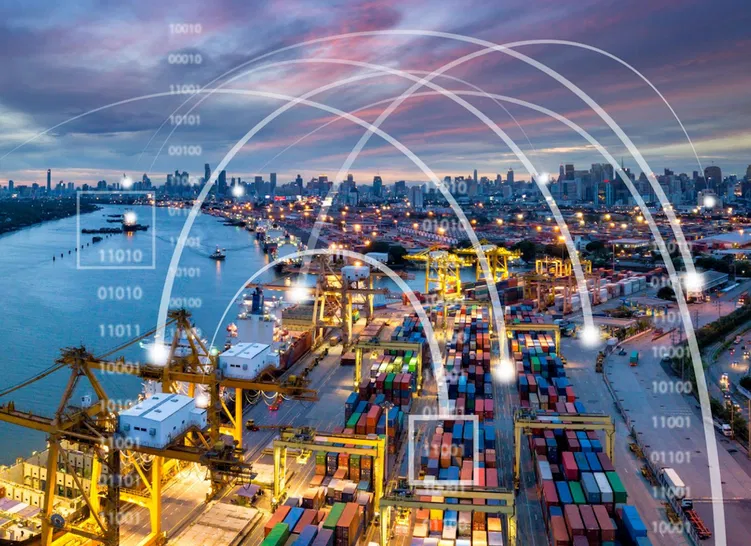Overview of Cyber Threats to Maritime Operations
A recent report from NATO on cybersecurity vulnerabilities reveals alarming threats faced by global ports. The growing frequency and sophistication of these cyber incursions pose significant risks not only to maritime operations but also to the worldwide supply chains that depend on them.
The Nature of Cyber Threats
According to NATO’s Cooperative Cyber Defence Centre of Excellence, ports around the globe are increasingly vulnerable to attacks from state-sponsored groups linked to countries such as Russia, Iran, and China. These actors have been identified as using cyber tools to disrupt operations and potentially inflict considerable economic and military damage. Considering that approximately 80% of international trade passes through these ports, the implications are far-reaching.
Targeted Systems in Maritime Operations
The report details specific systems that are at risk, including:
- Access Control Systems: Critical for managing who can enter the port facilities.
- Vessel Traffic Management Systems: Essential for ensuring the safe movement of ships in congested waterways.
Vulnerabilities in these systems could lead to major disruptions in not just commercial trade, but military logistics as well, hampering the ability of nations to respond to crises effectively.
The Tactical Landscape of Cyber Threats
NATO’s intelligence highlights the tactics employed by various groups. For instance, pro-Russian hacktivist groups like NoName057 have conducted coordinated attacks, such as the disruption of the Port of Rotterdam’s website, showcasing the operational risks posed to critical infrastructure.
Moreover, events have unfolded across other maritime points, including attacks on ports in Poland and the UK, illustrating the extensive reach of these cyber threats.
Global Impact on Maritime Logistics
The ramifications of these cyber threats extend beyond just ports. They undermine global logistics frameworks, directly affecting supply chains. Ports are critical nodes in military and economic logistics, and an uptick in successful cyberattacks could create ripple effects, impacting freight movements and shipping efficiency on an international scale.
Recommendations for Enhanced Cybersecurity
NATO’s report emphasizes the need for a complete overhaul of their cybersecurity framework for maritime operations, which has not seen significant updates in over a decade. Key recommendations include:
- Enhanced Intelligence Sharing: Creating networks that facilitate the swift exchange of information about potential threats.
- Coordinated Response Plans: Developing mechanisms to respond rapidly to cyber incidents in a unified manner across nations and organizations.
- Resilience Standards: Establishing benchmarks for cybersecurity practices amongst maritime entities to improve readiness against cyber threats.
Without robust measures in place, NATO warns that the cost of inaction will far outweigh the investment needed to boost maritime cybersecurity.
Το κόστος της αδράνειας
As highlighted by NATO, the potential fallout from failing to address these vulnerabilities could disrupt global trade, destabilize economies, and compromise national security. The report calls for an urgent reassessment of existing frameworks and argues that timely interventions are essential to preemptively tackle these cyber threats.
Critical Infrastructure Under Threat
The notion that ports are civilian-controlled yet crucial for military logistics underscores the complexity of maintaining cybersecurity in this area. Thus, it becomes crucial for both public and private sectors to collaborate in fortifying their defenses against these evolving threats.
Conclusion: Addressing Cyber Vulnerabilities in Logistics
The wariness regarding cyber intrusions highlights an essential aspect of global logistics—ports are not just trade gateways; they are critical linkages in defense and economic infrastructures. As companies like GetTransport.com step in to facilitate cargo movement and logistics solutions, the importance of cybersecurity cannot be overstated. By providing comprehensive transport services—including office relocations, home moves, cargo deliveries, and the dispatch of bulky items—GetTransport.com can adapt to the changing landscape while prioritizing security.
In summary, the insights presented by NATO illustrate that while global logistics is increasingly susceptible to cyber threats, the pathway forward involves investing in robust cybersecurity measures. Adopting a proactive approach will allow for the effective navigation of these challenges, ensuring safe and secure transportation of goods globally. For those planning their next cargo shipment, consider the reliability and affordability of GetTransport.com—not just a transport service, but a partner in navigating the complexities of logistics. GetTransport.com offers an efficient, cost-effective, and convenient transportation solution that aligns well with today’s logistics demands. Book your moving service today and ensure your logistics needs are met with the integrity you deserve!

 NATO Issues Warning on Cybersecurity Vulnerabilities in Global Ports">
NATO Issues Warning on Cybersecurity Vulnerabilities in Global Ports">